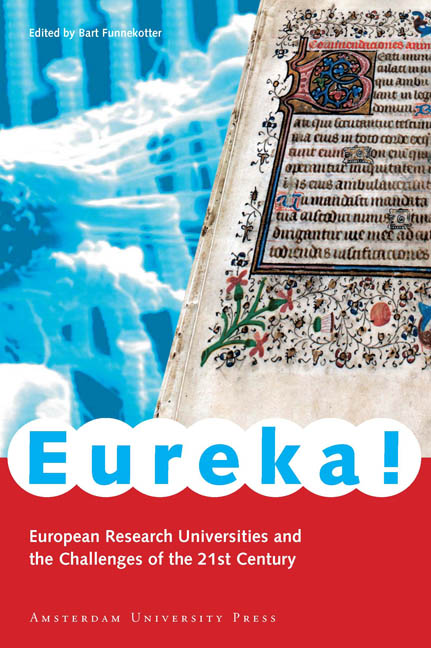Book contents
- Frontmatter
- Contents
- Foreword
- Introduction: Challenges of the Twenty-first Century
- Cambridge: Cambridge University
- Edinburgh: University of Edinburg
- Geneva: Université de Genève
- Heidelberg: Ruprecht-Karls-Universität
- Helsinki: Helsingin Yliopisto
- Leiden: Universiteit Leiden
- Louvain: Katholieke Universiteit Leuven
- Milan: Università Degli Studi Di Milano
- Munich: Ludwig-Maximilians-Universität
- Oxford: Oxford University
- Stockholm: Karolinska Institutet
- Strasbourg: Université Louis Pasteur
Foreword
Published online by Cambridge University Press: 23 January 2021
- Frontmatter
- Contents
- Foreword
- Introduction: Challenges of the Twenty-first Century
- Cambridge: Cambridge University
- Edinburgh: University of Edinburg
- Geneva: Université de Genève
- Heidelberg: Ruprecht-Karls-Universität
- Helsinki: Helsingin Yliopisto
- Leiden: Universiteit Leiden
- Louvain: Katholieke Universiteit Leuven
- Milan: Università Degli Studi Di Milano
- Munich: Ludwig-Maximilians-Universität
- Oxford: Oxford University
- Stockholm: Karolinska Institutet
- Strasbourg: Université Louis Pasteur
Summary
In every country in Europe, universities are confronted by national governments that spend less and less on higher education. Where in the 1980's funds seemed to be limitless, nowadays universities are facing severe cutbacks. Indeed, so much funding has fallen away that they are forced to look for new sources of money. Rather than each one struggling to face this challenge on its own, wouldn't it be better for the European universities to learn from each other how best to deal with this changing social climate? With this question in mind, the editors of Mare, Leiden University's weekly newspaper, decided to look – literally – across European borders and visit the eleven universities which together with Leiden make up the League of European Research Universities, or LERU.
Not surprisingly, it turned out that everyone, from Helsinki to Milan and from Heidelberg to Edinburgh, seems to be facing the same problems. How can we make ends meet? How can we get alumni to give more generously? How can we make money from our research? How do we deal with the business community? Is there still a place for scientific fields which will never be financially profitable?
In this book's introduction and in the twelve chapters on the various universities, administrators, scientists and students address these questions. Perhaps their most important conclusion, the thing on which they all seem to agree, is that whatever crisis may be looming, the university must remain a fully independent institution for higher education – not just a setting for commercial research and development activities. Universities have existed for nearly a thousand years in Europe, and they will doubtlessly survive the challenges of the 21st century as well.
The chapters of this book are similar in format. Each one starts with a brief sketch of a university, then continues with an interview with a member of one of its higher administrative bodies, followed by an article on research activities, and concludes with a description of student life.
Visits to the universities were conducted between March 2004 and January 2005. Although some of the people interviewed may by now have left the positions they held at the time of our visit, we do not feel that this decreases the relevance of their opinions.
- Type
- Chapter
- Information
- Eureka!European Research Universities and the Challenges of the 21st Century, pp. 7 - 8Publisher: Amsterdam University PressPrint publication year: 2005

